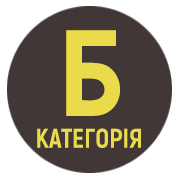MEDIA DISCOURSE AND ITS IMPACT ON THE PORTRAYAL OF THE RUSSO-UKRAINIAN WAR: CRITICAL STUDY OF THE DISCURSIVE STRATEGIES AND MANIPULATIVE TECHNIQUES
DOI:
https://doi.org/10.32782/folium/2023.3.4Keywords:
discourse, media discourse, critical discourse analysis, discourse historical approach, discursive strategies, impact, manipulationAbstract
The article examines the peculiarities of the use of discursive strategies based on the New York Times article ‘The War in Ukraine May Be Impossible to Stop. And the U.S. Deserves Much of the Blame’. The article examines the impact of the predication/nomination strategy, the strategy of intensification/ mitigation and the strategy of perspectivation on the reader and the portrayal of the Russo-Ukrainian war. Special attention is paid to the linguistic realizations of these strategies. The method of the study is Critical Discourse Analysis and its subtype – Discourse Historical Approach. Media discourse plays an important role in the portrayal of the Russo- Ukrainian war. The actors of the conflict use the media as one of the elements of the informational influence. That is why the media are often associated with concepts such as manipulation, psychological operations and propaganda. A number of discursive strategies can help the authors of the discourse to influence the reader. It has been found that the predication/nomination strategy and the strategy of intensification/mitigation deal with the positive or negative description of social actors and discourse processes. The main linguistic realizations of these strategies are attributes, implicatures and cognitive metaphors. The strategy of perspectivation is the main means of expressing the author’s own opinion. It is with its help that authors of discourse manipulate the consumer of discourse and impose their own narratives. The use of the strategy is found in the equivocation, the use of ambiguous terms, implicatures, disclaimer phrases and acts of intertextuality. Used together, these strategies can have a rather serious impact on the reader of the discourse and radically change their attitude towards the main social actors and processes of the Russo- Ukrainian war. Thus, the media play a key role in the portrayal of the events of the Russo-Ukrainian war and can have an impact on its course. Further study of the media discourse is important for a better understanding of the processes of the war and the actions of its actors.
References
Мак-Квейл Д. Теорія масової комунікації. Львів : Літопис. 2010. 538 с.
Сизонов Д. Ю. Медіатекст та медіадискурс у сучасному медійному просторі. Studia Linguistica, 7. 2013. С. 389-393.
Fairclough N. L. Language and Power (2nd edn.). Harlow : Longman. 2001.
Fairclough N. Analysing Discourse. Textual Analysis for Social Research. L. : Routledge. 2003.
Tannen D., Hamilton H. E., & Schiffrin D. The handbook of discourse analysis. John Wiley & Sons. 2015.
van Dijk T. A. Principles of critical discourse analysis. In The sociolinguistic reader. Gender and discourse, 2. 1998.
Wodak R. Critical Discourse Analysis, Discourse-Historical Approach. 2015. DOI: 10.4135/9780857028020.d6.
Wodak R. Methods of Critical Discourse Studies, 3rd edition. 2015.
Wodak R. & Meyer M. Methods of Critical Discourse Analysis, Vol. 1. 2001. DOI: 10.4135/9780857028020.d4.
Wodak R., & Meyer M. Critical discourse analysis: History, agenda, theory and methodology. In R. Wodak & M. Meyer (Eds.) Methods of critical discourse analysis (2nd revised edition). Sage. 2009. P. 1-33.










